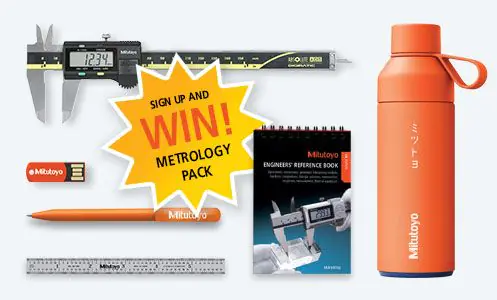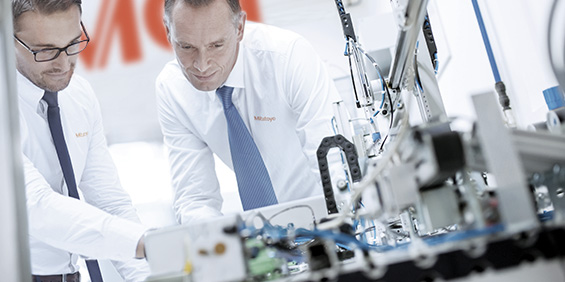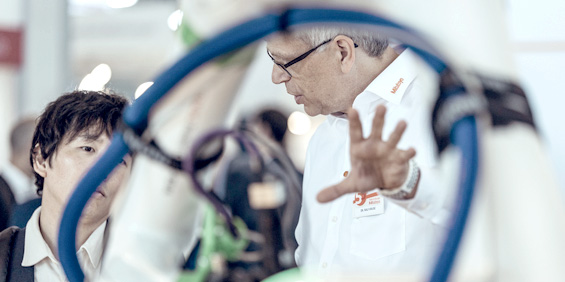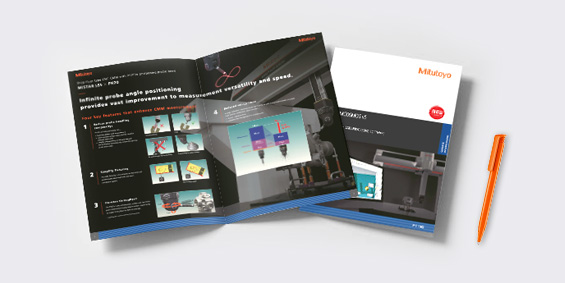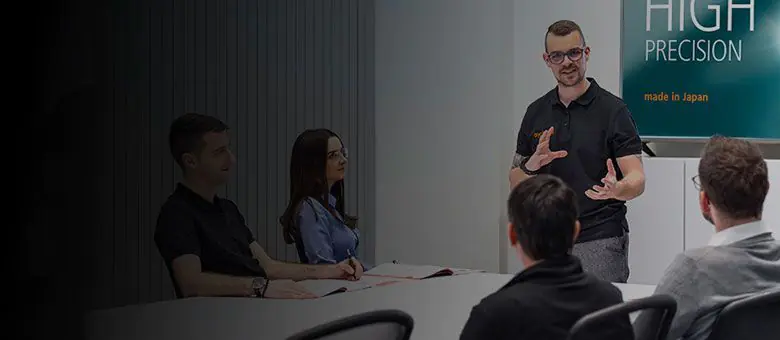Choose your country and language
- Nederlands, Belgique / België
- Česky, Česká republika
- Deutsch, Deutschland
- Español, España
- Português, Portugal
- English, Europe
- Français, France
- Italiano, Italia
- Magyar, Magyarország
- Nederlands, Nederland
- Deutsch, Österreich
- Polski, Polska
- Română, România
- Suisse / Schweiz / Svizzera
- Svenska, Sverige
- Suomeksi, Suomi
- Türkçe, Türkiye
- English, United Kingdom
- Slovenská, Slovak
-
Worldwide
- All Small Tools
- Calipers
- Micrometers & Micrometer Heads
- Inside Measuring Instruments
- Depth Measuring Instruments
- Height Gauges
- Indicators & Caliper Gauges
- Calibration Instruments
- Gauge Blocks
- Auxiliary Equipment
- Toolkits
- All CMM
- Small & Medium sized CMMs
- In-line & Shopfloor CMMs
- Large sized CMMs
- CMM Rotary Tables
- Probes
- Styli
- CMM Software
- Fixtures and Loading Systems
- Accessories
- SmartMeasure-AL
- All Vision
- Manual 2D Vision Systems
- Manual 3D Vision Systems
- 2D Vision System - QM-Fit
- 3D CNC Vision Systems
- 3D CNC Multi-sensor Vision Systems
- 3D CNC Micro Geometry Vision Systems
- Vision System Software
- Vision System Accessories
- All Optical
- Magnifiers
- Measuring Projectors
- Measuring Microscopes
- Microscope Units
- Objective Lenses
- TAGLENS
- All Hardness
- Portable Hardness Testers
- Rockwell Testers
- Vickers Testers
- Micro-Vickers Testers
- Hardness Testing Software
- Reference materials and indenters
- All Sensors
- Linear Gauges
- Low Force Gauges
- Counters and Display Units
- Laser Scan Micrometers
- Surface Measure
- Sensor Management Software
- All Data Management
- Data Management Software
- Mini Processors
- Signal Cables
- Wireless Communication
- Interfaces
- Timerbox, Digimatic Switch Box, Tolerance Box
- Micrometers & Micrometer Heads
- Digital & Mechanical Micrometers
- Micrometer Accessories
- Micrometer Heads
- Micrometer Head Accessories
- Inside Measuring Instruments
- Inside Micrometers
- Bore Gauges
- Inside Micrometer & Bore Gauge Accessories
- Indicators & Caliper Gauges
- Digital Indicators
- Indicator Accessories
- Lever Indicators
- Dial Indicators
- Dial Test Indicators Accessories
- Thickness, Caliper & Tension Gauges
- Gauge Blocks
- Steel Gauge Block Sets
- Steel Individual Gauge Blocks
- Ceramic Gauge Block Sets
- Ceramic Individual Gauge Blocks
- Special Gauge Blocks
- Gauge Block Accessories
- Small & Medium sized CMMs
- Manual CRYSTA-KM 565
- CRYSTA-Apex V - 500, 700, & 900 Series
- CRYSTA-Apex V - 1200, 1600 & 2000 Series
- CRYSTA-Apex EX Series for REVO
- STRATO-Active Series
- STRATO-Apex - 500, 700, & 900 Series
- STRATO-Apex - 1600 Series
- LEGEX Series
- Styli
- Styli Kits
- Straight Styli
- Diamond Coated Styli
- Master Ball
- Machine Tool Styli
- Star Styli
- Styli for Star Styli
- Cylinder Styli
- Disk Styli
- Tip Styli
- Extensions
- Holders
- Adapters
- Joints
- Screws for Cubes
- Tools
- StyliCleaner
- Fixtures and Loading Systems
- Standard Fixturing Kits
- Eco-Fix Kits
- Custom Fixtures from MGT
- Custom Loading Systems from MGT
- 3D CNC Vision Systems
- Quick Vision ACTIVE
- Quick Vision APEX / HYPER
- Quick Vision ACCEL
- Quick Vision ULTRA
- Measuring Projectors
- PJ Series
- PV Series
- PH Series
- M2 Software
- Data Processing Unit
- Edge Detection Sensor
- Accessories
- Measuring Microscopes
- TM Series Gen. B
- MF Series Gen. D
- MF-U Series Gen. D
- Illumination Sources
- Vision Unit
- QSPAK-VUE Software
- Objective Lenses
- ML-Series Objectives
- Brightfield Observation Objectives
- Brightfield/Darkfield Observation Objectives
- NIR Objectives
- NIR LCD Objectives
- NUV Objectives
- NUV LCD Objectives
- UV Objectives
- UV LCD Objectives
- Surface Roughness
- Surftest SJ-220
- Surftest SJ-310
- Surftest SJ-410
- Surftest SJ-500
- Surftest SJ-500P
- Surftest SV-2100P
- Formtracer Avant FTA-S3000
- Surftest Extreme SV-3000CNC
- Surftest Extreme SV-M3000CNC
- Surface Roughness & Contour
- Formtracer Avant FTA-D3000 / FTA-D4000 Series
- Formtracer CS-3300
- Formtracer Extreme SV-C4500CNC
- Formtracer Extreme SV-C4500CNC HYBRID Type 1
- Formtracer Extreme CS-5000CNC and CS-H5000CNC
- Micro-Vickers Testers
- Manual Micro-Vickers Testers
- Semi-Automatic Micro-Vickers Testers
- Automatic Micro-Vickers Testers
- Reference materials and indenters
- Hardness reference materials
- Hardness indenters and replacement balls
- Linear Gauges
- ABSOLUTE Digimatic Linear Gauge LGS Series
- Air Drive Unit
- Linear Gauge LG100 Series
- Linear Gauge LG200 Series
- Laser Hologauge
- Counters and Display Units
- EJ Counter and Interfaces for Linear Gauges
- EC Counter for Linear Gauges
- EG Counter for Linear Gauges
- EB Counter for Linear Gauges
- EH Counter for Linear Gauges
- EV Counter for Linear Gauges
- Display Unit for EV Counter
- Laser Scan Micrometers
- Laser Scan Micrometer Measuring Unit and Display Unit Package
- Laser Scan Micrometer Measuring Unit
- Laser Scan Micrometer
- Laser Scan Micrometer Display Unit
- Laser Scan Micrometer Optional Accessories
- DRO Linear Scales and Counters
- DRO Linear Scales AT103
- DRO Linear Scales AT103 - High Accuracy
- DRO Linear Scales AT113
- DRO Linear Scales AT113 - High Accuracy
- DRO ABS Linear Scales AT715
- Universal DRO KA-200 Counter
- NC Linear Scales
- NC Linear Scales ST36
- NC Linear Scales ST46-EZA
- NC Linear Scales ABS ST700
- NC Linear Scales ABS ST1300
- NC Linear Scales AT211
- NC Linear Scales ABS AT1100
- NC Linear Scales ABS AT1300
- Scale Units
- Horizontal ABSOLUTE Scale Coolant Proof IP66
- Horizontal ABSOLUTE Scale Standard
- Horizontal ABSOLUTE Scale Measurement Direction Switching
- Horizontal ABSOLUTE Scale Diameter Function
- Vertical ABSOLUTE Scale Standard
- Vertical ABSOLUTE Scale Measurement Direction Switching
- Vertical ABSOLUTE Scale Diameter Function
- Signal Cables
- USB Input Tool Direct (Digimatic-USB Cable)
- Digimatic Data Cables
- Digimatic Extension Cables
- Wireless Communication
- Wireless Communication System U-WAVE
- U-WAVE Bluetooth
- U-WAVE-T Connection Cables and Connection Units
 Aerospace
Aerospace
Complex aerospace applications need fast, extremely precise quality control to ensure accurate assemblies. See how Mitutoyo makes it happen
 Automotive
Automotive
The automotive industry continues to innovate, and Mitutoyo delivers the advanced inspection and scanning capabilities to help manufacturers achieve ongoing production
 Energy
Energy
Mitutoyo’s measurement and analysis solutions are designed to help energy providers improve reliability and increase equipment uptime.
 Medical
Medical
To protect patient well-being, medical applications require exceptional accuracy. See how extensively tested solutions from Mitutoyo can help you achieve it.
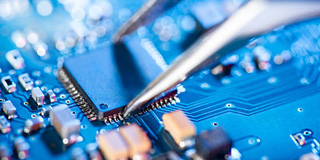 Electronics
Electronics
The non-contact and vision measurement solutions from Mitutoyo bring microscopic accuracy to smaller and denser electronic components
 Original Equipment Manufacturers
Original Equipment Manufacturers
Mitutoyo OEM can address missing expertise or resources by supplying you with our renowned Metrology equipment that seamlessly integrates into your products.
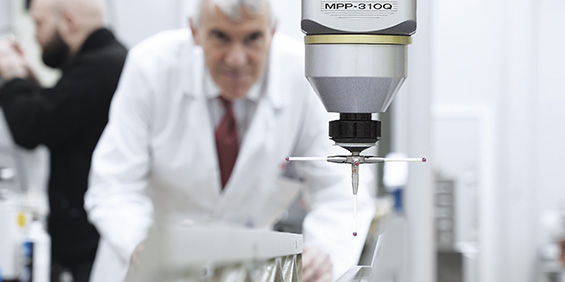 UKAS Calibration
UKAS Calibration
Our UKAS accredited laboratory can handle all your metrology needs.
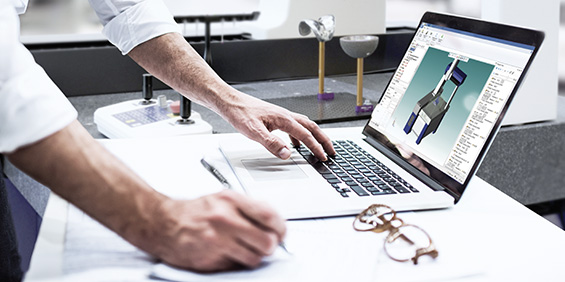 Subcontract Measurement
Subcontract Measurement
A full range of subcontract measurement, reporting and programming services.
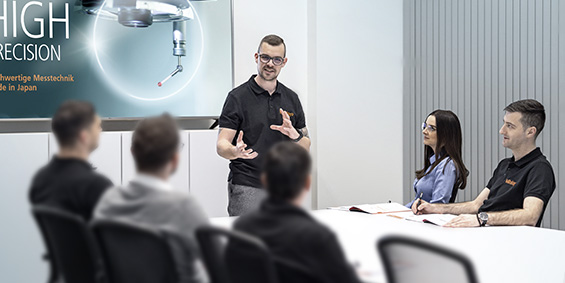 Training
Training
Specialist in-house and on-site courses covering all types of metrology.
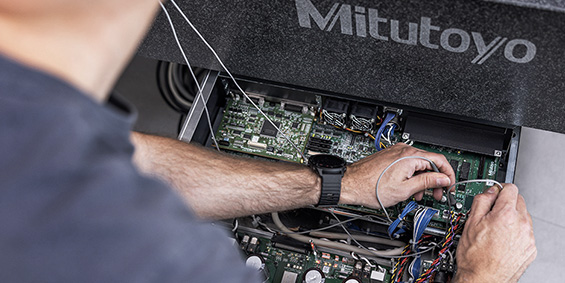 Service Contracts
Service Contracts
Anticipate your maintenance costs and provide savings on future upgrades.
 IT Support
IT Support
Offering essential maintenance, software upgrades and hardware replacement whilst minimising critical downtime.
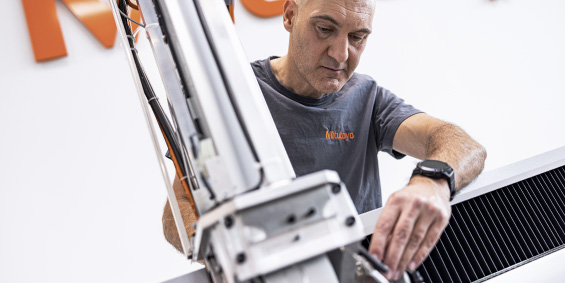 Repairs & Spare Parts
Repairs & Spare Parts
Our purpose built repair and calibration facility is home to skilled and certified technicians.
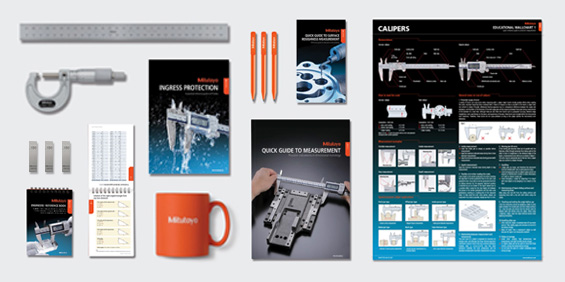 FREE Education Pack
FREE Education Pack
A range of education literature designed to serve as convenient references to dimensional metrology.
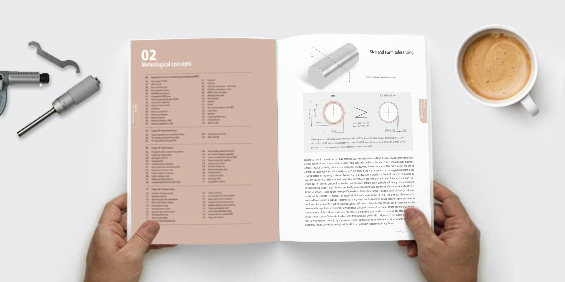 Metrology Handbook
Metrology Handbook
Aimed at anyone interested in gaining an understanding of the fundamentals of dimensional metrology.
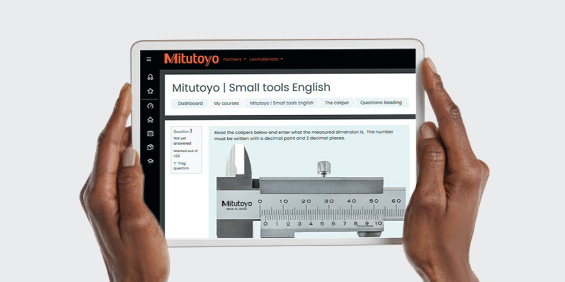 E-Learning
E-Learning
For those interested in metrology, Mitutoyo offers E-Learning courses to help train students, staff, or even hobbyists.
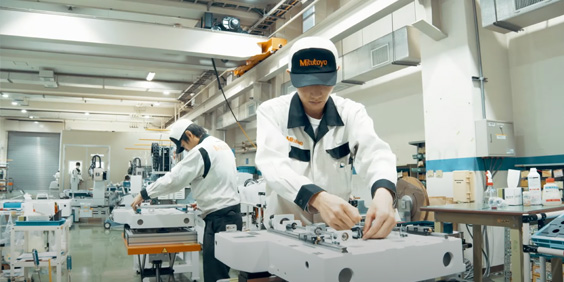 Mitutoyo Worldwide
Mitutoyo Worldwide
The world's biggest metrology company
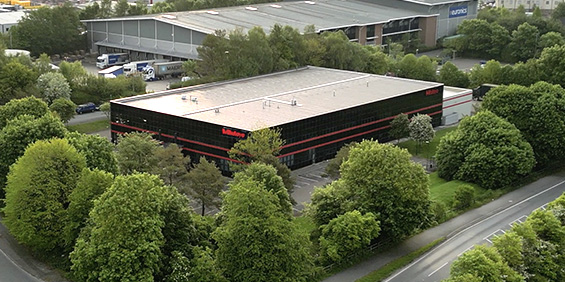 Mitutoyo in the UK
Mitutoyo in the UK
Mitutoyo have four facilities offering a wide range of services in the UK.
 EKO House
EKO House
An important key to understanding Mitutoyo's company philosophy is the EKO house donated by company founder Yehan Numata.
 Promotions & Discounts
Promotions & Discounts
Discover the latest product and service promotional deals and discounts available.
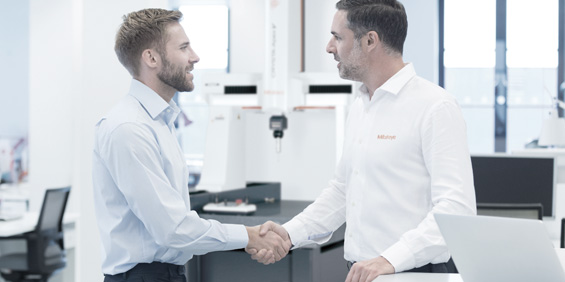 Case Studies
Case Studies
For an overview of Mitutoyo's capabilities, take a to look over our collection of case studies.
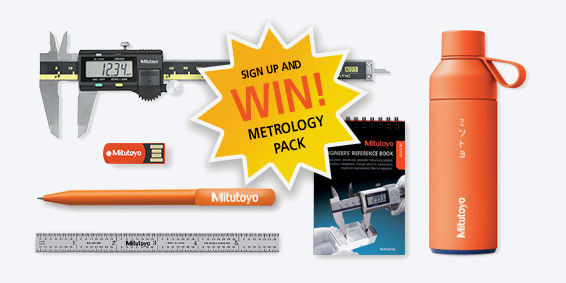 Newsletter
Newsletter
Sign up to our eNewsletter and you could win a Metrology Pack!
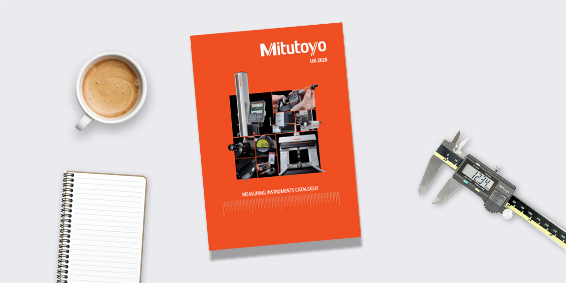 Product Catalogue
Product Catalogue
View our extensive product range in our online UK catalogue.
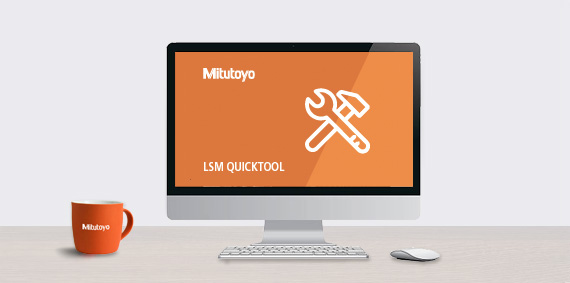 Software & Updates
Software & Updates
Download our software and updates easily and conveniently. (EU website )🇪🇺
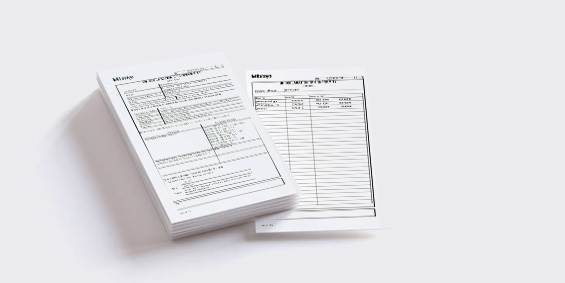 Declarations of Conformity
Declarations of Conformity
Here you can download the full versions for the EU and the UK.
 Virtual Showroom
Virtual Showroom
Experience our interactive virtual showroom.
 Newsletter
Newsletter
Sign up to our eNewsletter and you could win a Metrology Pack!
-
Products
- Back Products
- Products
-
Small Tools
- Back Small Tools All Small Tools
- Calipers
-
Micrometers & Micrometer Heads
- Back Micrometers & Micrometer Heads Micrometers & Micrometer Heads
- Digital & Mechanical Micrometers
- Micrometer Accessories
- Micrometer Heads
- Micrometer Head Accessories
-
Inside Measuring Instruments
- Back Inside Measuring Instruments Inside Measuring Instruments
- Inside Micrometers
- Bore Gauges
- Inside Micrometer & Bore Gauge Accessories
-
Depth Measuring Instruments
- Back Depth Measuring Instruments Depth Measuring Instruments
- Depth Micrometers
- Depth Calipers & Gauges
- Depth Caliper Accessories
- Height Gauges
- Indicators & Caliper Gauges
-
Calibration Instruments
- Back Calibration Instruments Calibration Instruments
- Height Masters
- Check Masters
- Calibration Tools
- Gauge Blocks
- Auxiliary Equipment
- Toolkits
-
CMM
- Back CMM All CMM
- Small & Medium sized CMMs
-
In-line & Shopfloor CMMs
- Back In-line & Shopfloor CMMs In-line & Shopfloor CMMs
- MACH Ko-ga-me
- MACH 3A 653
- MACH V 9106
- MiSTAR 555
-
Large sized CMMs
- Back Large sized CMMs Large sized CMMs
- CARB-Series
-
CMM Rotary Tables
- Back CMM Rotary Tables CMM Rotary Tables
- MRT240 Rotary Table
- MRT320 Rotary Table
- Probes
- Styli
-
CMM Software
- Back CMM Software CMM Software
- MiCAT Planner
- MCOSMOS
- MAFIS Express
- MSURF
-
Fixtures and Loading Systems
- Back Fixtures and Loading Systems Fixtures and Loading Systems
- Standard Fixturing Kits
- Eco-Fix Kits
- Custom Fixtures from MGT
- Custom Loading Systems from MGT
- Accessories
- SmartMeasure-AL
-
Vision
- Back Vision All Vision
-
Manual 2D Vision Systems
- Back Manual 2D Vision Systems Manual 2D Vision Systems
- Quick Image
- Quick Image Software
-
Manual 3D Vision Systems
- Back Manual 3D Vision Systems Manual 3D Vision Systems
- Manual Quick Scope
- Quick Scope Software
- 2D Vision System - QM-Fit
-
3D CNC Vision Systems
- Back 3D CNC Vision Systems 3D CNC Vision Systems
- Quick Vision ACTIVE
- Quick Vision APEX / HYPER
- Quick Vision ACCEL
- Quick Vision ULTRA
-
3D CNC Multi-sensor Vision Systems
- Back 3D CNC Multi-sensor Vision Systems 3D CNC Multi-sensor Vision Systems
- Quick Vision Hybrid
- Quick Vision WLI
-
3D CNC Micro Geometry Vision Systems
- Back 3D CNC Micro Geometry Vision Systems 3D CNC Micro Geometry Vision Systems
- UMAP Vision Systems
- UMAP Software
-
Vision System Software
- Back Vision System Software Vision System Software
- QVPAK
- QSPAK
- QIPAK
- Vision System Accessories
-
Optical
- Back Optical All Optical
-
Magnifiers
- Back Magnifiers Magnifiers
- Pocket Comparator
- Clear Loupes
-
Measuring Projectors
- Back Measuring Projectors Measuring Projectors
- PJ Series
- PV Series
- PH Series
- M2 Software
- Data Processing Unit
- Edge Detection Sensor
- Accessories
- Measuring Microscopes
-
Microscope Units
- Back Microscope Units Microscope Units
- Microscope Unit FS70 Series
- Video Microscope Unit VMU Series
- Objective Lenses
- TAGLENS
- Form
-
Hardness
- Back Hardness All Hardness
-
Portable Hardness Testers
- Back Portable Hardness Testers Portable Hardness Testers
- Leeb Hardness Testing HH-V400
- Digital and Analogue Durometers HH-300
-
Rockwell Testers
- Back Rockwell Testers Rockwell Testers
- Manual Machines
- Semi Automatic Machines
- Automatic Machines
-
Vickers Testers
- Back Vickers Testers Vickers Testers
- Manual Testers
- Semi Automatic Testers
- Automatic Testers
- Micro-Vickers Testers
-
Hardness Testing Software
- Back Hardness Testing Software Hardness Testing Software
- AVPAK
-
Reference materials and indenters
- Back Reference materials and indenters Reference materials and indenters
- Hardness reference materials
- Hardness indenters and replacement balls
- Sensors
-
Digital Scales
- Back Digital Scales All Digital Scales
- DRO Linear Scales and Counters
- NC Linear Scales
-
Scale Units
- Back Scale Units Scale Units
- Horizontal ABSOLUTE Scale Coolant Proof IP66
- Horizontal ABSOLUTE Scale Standard
- Horizontal ABSOLUTE Scale Measurement Direction Switching
- Horizontal ABSOLUTE Scale Diameter Function
- Vertical ABSOLUTE Scale Standard
- Vertical ABSOLUTE Scale Measurement Direction Switching
- Vertical ABSOLUTE Scale Diameter Function
-
Data Management
- Back Data Management All Data Management
-
Data Management Software
- Back Data Management Software Data Management Software
- MeasurLink 10
- USB-ITPAK
-
Mini Processors
- Back Mini Processors Mini Processors
- Digimatic Mini Processor DP-1VA LOGGER
- Signal Cables
- Wireless Communication
- Interfaces
-
Timerbox, Digimatic Switch Box, Tolerance Box
- Back Timerbox, Digimatic Switch Box, Tolerance Box Timerbox, Digimatic Switch Box, Tolerance Box
- Digimatic Timerbox
- Digimatic Switch Box
-
Software
- Back Software All Software
-
CMM Software
- Back CMM Software CMM Software
- MiCAT Planner
- MCOSMOS
- MAFIS-Express
- MSURF
- Vision System Software
-
Form Software
- Back Form Software Form Software
- Formtracepak
- Roundpak
- Hardness Testing Software
- Sensor Management Software
-
Data Management Software
- Back Data Management Software Data Management Software
- Measurlink 10
- USB-ITPAK
- Bespoke
- Automated Measuring Devices
- Industries
-
Services
- Back Services
- Services
-
Bespoke Solutions
- Back Bespoke Solutions
- Bespoke Solutions
- UKAS Calibration
-
Subcontract Measurement
- Back Subcontract Measurement
- Subcontract Measurement
- Training
- Service Contracts
- IT Support
- Repairs & Spare Parts
- Support
- Education
-
Corporate
- Back Corporate
- Corporate
-
Mitutoyo Worldwide
- Back Mitutoyo Worldwide
- Mitutoyo Worldwide
- Name & Philosophy
- Factory Tours
- Mitutoyo Corporation
-
Mitutoyo History
- Back Mitutoyo History
- Mitutoyo History
- Mitutoyo in Europe
- Global Gateway
-
Mitutoyo in the UK
- Back Mitutoyo in the UK
- Mitutoyo in the UK
- Job Opportunities
- Certifications & Accreditations
- Sustainability
- EKO House
-
News
- Back News
- News
-
Events & Exhibitions
- Back Events & Exhibitions
- Events & Exhibitions
-
Promotions & Discounts
- Back Promotions & Discounts
- Promotions & Discounts
- Case Studies
- Newsletter
-
Resources
- Back Resources
- Resources
-
Product Literature
- Back Product Literature
- Product Literature
- Product Catalogue
- Software & Updates
- Declarations of Conformity
- Virtual Showroom
- Newsletter
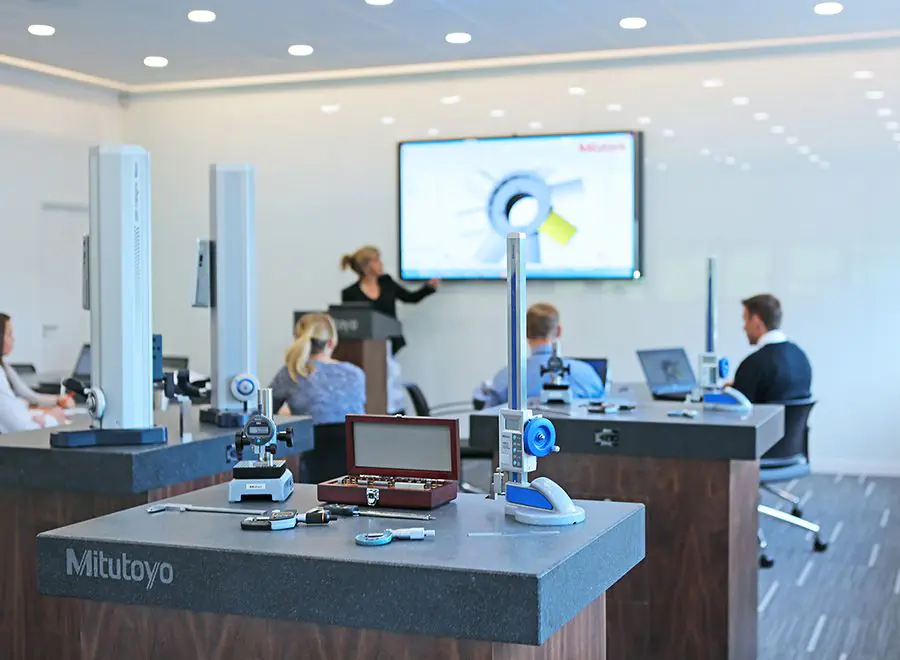
The future of our industry depends on our ability to train and educate today, for the needs of tomorrow.
Our commitment towards the raising of standards in measurement education starts from courses covering the fundamentals of precision measurement through to the most sophisticated of subject matter and product use/application. From Micrometers to CMMs there’s a course to suit your needs or if not, just ask, and we will design one to suit your specific demands.
Every training course is designed to equip trainees not only with theoretical knowledge but extensive 'hands on' practical experience gained from the availability of the most modern and comprehensive range of equipment to be seen in any educational establishment.
Metrology Courses
Dive into our diverse metrology courses, from small hand tools to functional calibration and form measurement. Unlock in-depth knowledge and hands-on skills crucial for mastering precision in varied industrial applications.
Fundamental of Dimensional Metrology
The objective of the course is to provide the trainee with a basic understanding of precision measurement along with the practical use of precision measuring instruments.
There are no prior requirements for this course.
The course is comprised of the following elements;
- Precision Measurement
- Units and Standards of Length
- Errors in Measurement
- Types of Basic Measuring Equipment
- Practical Introduction to Measuring Instruments
- Interpretation of Engineering Drawings
Why Attend?
The ability to understand the principles associated with measurement and interpreting drawings, backed up with practical experience, is the underpinning knowledge needed by any employee, who, through their daily work is required to carry out, define or analyse the results of any measurement activity.
Course Duration
- 1 Day
Geometric Dimensioning and Tolerancing
The objective of the course is to provide the trainee with a basic understanding of Geometric Dimensioning and Tolerancing including interpretation and application.
A prior understanding of basic engineering drawings would be advantageous.
A related course is Geometric Tolerancing with CMM’s.
This course is comprised of the following elements…
- Introduction to Basic Geometric Tolerance Symbols
- Interpretation of Toleranced and Datum Features
- Applications of symbols and concepts covered include:
Parallelism, Cylindricity, Perpendicularity, Symmetry, Angularity,
Position, Runout, Total Run Out, Straightness, Flatness, Roundness,
Profile of a Line and/or Surface
- Practical exercises involving drawing interpretation and the application of
- Geometric Tolerancing symbols.
- Interpretation and calculation of Maximum Material Condition
- Explanation of projected tolerance zone.
Course Duration
- 2 Days
Small Dimensional Metrology Instruments
The objective of the course is to provide the trainee with the skills needed to use a range of small items of measuring instruments for linear and angular measurement.
There are no prior requirements for this course.
Course Content
- Label and describe the functions of standard instruments. (i.e. micrometer, calliper, height gauge, DTI and bevel protractor)
- Describe how standard instruments can be adapted for special applications
- Explain the causes of errors when using small dimensional metrology instruments
- Select the most appropriate tool for measurement
- Prepare instruments for measurement
- Build a gauge block stack
- Read a scale and express standard conventions
- Calculate the sine of an angle
Course Duration
- 1 Day
Functional Calibration
The objective of the course is to provide the trainee with an understanding of workshop / functional calibration principles of standard measuring tools.
Prior knowledge of Standard Measuring Tools is expected.
Note! Should this not be the case it is recommended that attendance on the one day Fundamentals of Dimensional Metrology Training Course is carried out prior to attendance on this course.
This course is comprised of the following elements…
- Introduction to Calibration
- Introduction to Uncertainty of Measurement
- Errors of Measurement
- Functional Calibration of:
- Standard Vernier Caliper (BS EN ISO 13385-1)
- Digital Vernier Caliper (BS EN ISO 13385-1)
- 0-1” Micrometer (BS EN ISO 3611)
- 0-25mm Micrometer (BS EN ISO 3611)
- Digital Micrometer (BS EN ISO 3611)
- Depth Micrometer (BS6468)
- Depth Vernier (BS EN ISO 13385-2)
- Height Gauge (BS EN ISO 13225)
- Digital Height Gauge (BS EN ISO 13225)
- Dial Indicator, Lever & Plunger Types (BS2795 & BS907)
- Introduction to UKAS
- Aspects of Calibration and its Application
- Methods of Minimising Measurement Errors
- UKAS and Calibration Systems
Course Duration
- 2 Days
Service & Repair
The objective of the course is to provide the trainee with a basic understanding of the principles associated with the servicing and repair of basic measuring instruments.
An understanding of basic measuring tools would be advantageous.
This course is comprised of the following elements…
- Each instrument is broken down into its component parts showing the process of repair / replacement.
- Upon completion, each instrument is systematically rebuilt
- An emphasis is placed on the practical aspects of each instrument
Instruments covered are:
- Micrometer (Standard & Digimatic)
- Calipers (Vernier, Dial & Digimatic)
- Dial Indicators
- Dial Test Indicators
Why Attend?
To gain a practical understanding of the principles involved in the service and repair of basic hand tools giving the ability for minor repairs to be completed on site and the measuring tools placed back in service promptly.
Course Duration
- 1 Day
Surface Texture Measurement
No prior experience of Surftest Machines is assumed.
Trainees are expected to be computer literate, conversant with the use of conventional measuring techniques and equipment, and to be able to read engineering drawings.
The course is comprised of the following elements…
- Basic understanding of machine
- Calibration of stylus
- Screen breakdowns
- Measurement of test piece / components
- Some principles of surface finish
- Reporting functions of software
- Part programming and data storage
- Applications with customer’s components
- Unit assessment
Course Duration
1 Day
Roundness Measurement
Trainees are expected to be computer literate, conversant with the use of conventional measuring techniques and equipment, and to be able to read engineering drawings.
The course is comprised of the following elements…
Day One
- Introduction to machine
- Checking and changing styli
- Levelling table
- Calibration of styli
- Checking detector accuracy using a glass reference hemisphere
- Manual or automatic centring and levelling
- Manual measurement
- Understanding of screen and printer outputs
Day Two
- Review of first day
- Part programming
- Adding and checking of different parameters
- Deleting data
- Partial rotations
- Unit assessment
No prior experience of Roundtest equipment is assumed.
Contour Measurement
Trainees are expected to be computer literate, conversant with the use of conventional measuring techniques and equipment, and to be able to read engineering drawings.
The course is comprised of the following elements…
Day One
- Introduction to machine
- Checking and changing styli
- Calibration of Stylus and Scales
- Tracing and storing scan data
- Investigating data and producing Drawings
- Tolerancing measured data
Day Two
- Review of first day
- Comparing Nominal to Actual scan data
- Printing options
- Programming : Comparison and Drawing versions
- Connecting scans (for long or difficult products)
- Unit assessment
No prior experience of Contracer equipment is assumed.
CMM Courses
Featuring industry-leading GEOPAK and an extensive 5-day program on CNC CMM operation. Master precision measurement techniques crucial for industries. Gain hands-on expertise in maximising CMM capabilities with our comprehensive training.
Contact Co-ordinate Measurement
Trainees are expected to be computer literate, conversant with the use of conventional measuring techniques and equipment, and to be able to read engineering drawings.
The course is comprised of the following elements;
Day 1
- Principals of a Co-ordinate Measuring Machine and Probing Systems
- Tailoring the GEOPAK environment
- Probe calibration
- Principals and establishment of Co-ordinate Systems
Day 2
- System start up
- Introduction and Measurement of Geometric Elements
- Introduction to Calculation and Construction functions
- (i.e. Distance, Angle, Connection Elements etc.)
Day 3
- Establishment of alternative Co-ordinate Systems
- Three-Dimensional Element measurement
- Introduction to CNC Part Programming
- Presentation of measurement results
Day 4
- Automatic Probe Calibration
- Continuation of CNC Part Programming
- Running Part Programs
- Editing of Part Programs
Day 5
- Continuation of CNC Part Programming
- Part Program management (Backup / Copy etc. of Part Programs.)
- Unit assessment
Contact Co-ordinate Measurement Manual
Delegates are expected to be computer literate, conversant with the use of conventional measuring techniques and equipment, and to be able to read engineering drawings.
The course is comprised of the following elements;
Day 1
- Principals of a Co-ordinate Measuring Machine and Probing Systems
- Tailoring the GEOPAK environment
- Probe calibration
- Principals and establishment of Co-ordinate Systems
Day 2
- System start up
- Introduction and Measurement of Geometric Elements
- Introduction to Calculation and Construction functions (i.e. Distance, Angle, Connection Elements etc.)
Day 3
- Establishment of alternative Co-ordinate Systems
- Three-Dimensional Element measurement
- Introduction to Part Programming
- Presentation of measurement results
Day 4
- Continuation of Part Programming
- Running Part Programs
- Editing of Part Programs
- Unit assessment
MCOSMOS GEOPAK CNC Advanced
This course is a follow up to the CNC Basic course and therefore, it is recommended that a minimum of six weeks is left between completing the Basic course and attending this course to allow consolidation of previous learning.
The course is comprised of the following elements;
Day 1
- Review of Probe Calibration and Part Alignment
- Use of Clearance Height
- Archiving Co-ordinate Systems
- Batch Loading of Part Programs
- Use and applications of Loops
- Introduction of String Variables
- External storage of data
Day 2
- Use of Variables (including Input and Yes / No)
- Use of Best Fit
- RPS Alignment
- Use of Minimum / Maximum function
- Introduction to Branching and the use of Sub-programs
If time permits the following may also be covered on request
- Use of Geometric tolerances on the CMM (GD&T)
- Use and set-up of the Security function
- Introduction to Manager Programs
- Introduction to Protocol Manager
MCOSMOS GEOPAK Manual Advanced
his course is a follow up to the Manual Basic course and therefore it is recommended that a minimum of six weeks is left between completing the Basic course and attending this course to allow consolidation of previous learning.
The course is comprised of the following elements…
Day 1
- Review of Probe Calibration and Part Alignment
- Offset alignment techniques
- Use of Best Fit
- External storage of data
- RPS Alignment
Day 2
- Use and applications of Loops
- Formula Calculation
- Use of Minimum / Maximum function
- Introduction to Branching and the use of Sub-programs
- Application of Head Data
If time permits the following may also be covered on request
- Use and set-up of the Security function
- Use of Geometric tolerances on the CMM (GD&T)
MCOSMOS ScanPak
This course is run over two consecutive days. It is expected that personnel attending the course will be fully conversant with GEOPAK, Probe Calibration and the establishment of Co-ordinate Systems. It is advised that attendance should be arranged a few weeks after completion of the GEOPAK Basic course to allow for consolidation of prior learning.
The course is comprised of the following elements
Day 1
- Setting default scanning values
- Scanning 2D Contours
- Editing and manipulation of Contours
- Scanning of Geometric elements
- Storage / Export of Contours
Day 2
- Review of content of day one
- Comparison of Contours
- Application of Tolerances
- Presentation of measurement results
- Patch scanning procedure (CNC only)
MCOSMOS CAT1000PS
This course is run over two days. It covers the use and application of the software. It is expected that personnel attending the course will be fully conversant with GEOPAK, Probe Calibration and the establishment of Co-ordinate Systems.
The course is comprised of the following elements:
- Introduction and start procedure
- Machine Builder (v2.4 + v3.0 only)
- CMM System Manager (v3.2 only)
- Viewing the CAD model
- CAT 1000 settings
- Measurement of Geometric elements using the CAD model (i.e. Point, Plane, Circle, Line, Point, Cylinder, Cone and Sphere)
- Move machine using the CAD model (CNC only)
- Probe changes using the CAD model
- Surface measurement (CAT1000S only)
- Viewing measured Surface data (CAT1000S only)
- Manipulation of measured Surface data (CAT1000S only)
- Output and Storage of measured Surface data (CAT1000S only)
- Best Fit
- Reference Point System (R.P.S.) alignment
- Alignment Wizard (v3.2 only)
- Off-line programming and program simulation
Vision Courses
Explore our comprehensive vision measurement training courses covering both software and latest generation machines. Gain expertise in precise measurements, enhancing skills crucial for various industries. Elevate your proficiency with our diverse, hands-on learning modules.
Quick Vision Basic
Trainees are expected to be computer literate, conversant with the use of conventional measuring techniques and equipment, and to be able to read engineering drawings.
The course is comprised of the following elements…
Day 1
- Introduction to the Quick Vision measuring concept
- Explanation and implementation of Co-ordinate Systems
- Element measuring techniques
- Basic measurement construction
- Searching techniques
Day 2
- Review of content of Day 1
- Advanced Alignment techniques
- Application of Tolerances
- Advanced measurement construction
- Introduction to Part Programming
Day 3
- Review of content of Day 2
- Part Programming
- Advanced measuring routines (Step and Repeat)
- Program Editing
- Lens Calibration
- Unit assessment
Quick Vision Intermediate
The course is comprised of the following elements;
Day 1
- Introduction to the Quick Scope measuring concept
- Explanation and implementation of Co-ordinate Systems
- Element measuring techniques
- Basic measurement construction
- Searching techniques
Day 2
- Review of content of Day 1
- Application of Tolerances
- Part Programming
- Program editing
Day 3
- Review of previous two-day Basic course
- Advanced measuring routines (Step and Repeat)
- Advanced data collation (Minimum / Maximum)
- Unit assessment
Quick Vision Advanced
This Quick Vision Advanced course is run over one day. It is advised that a minimum of six weeks are left between attending the Basic course and the Advanced course to allow for consolidation of prior learning. The course is comprised of the following elements
- Introduction to Visual Basic code.
- Introduction to Variables.
- Dialog boxes – use and application.
- Introduction to filtering.
- Data storage and utilisation.
- Branch programming.
- Use of graphics.
- Exporting results to csv.
Further bespoke training is available on application. Topics covered include:
- Sub programs.
- Output of measured results to Excel.
- User access rights.
Course Duration
- 1 Day
Quick Vision Touch Probe
This Quick Vision Touch Probe course is run over one day. It is advised that a minimum of six weeks are left between attending the Basic course and the Touch Probe course to allow for consolidation of prior learning.
- The course is comprised of the following elements.
- Introduction to Touch Probe Technology.
- Calibration of Styli.
- Installation / Calibration of Probe Change Rack.
- 3D measurement using Probe and Lens.
Course Duration
- 1 Day
Quick Vision and Quick Scope Operator
This course consists of one days training. It is suited to personnel who require a basic overview of system capabilities (supervisory), or those requiring sufficient knowledge to carry out simple measurement routines that have been created for them. No prior experience of the equipment is assumed, but delegates will be expected to be competent with the use of basic measuring equipment and to have some understanding of engineering drawings and the concept of Tolerances.
The course is comprised of the following elements.
- Turn on / turn off procedure.
- Opening and executing (existing) programs.
- Use of stage control and manual points for part location.
- Understanding basic commands and alignment.
- Access and storage of measured and statistical data.
- Error recovery (in program) techniques.
- General care of the system and its environment.
Course Duration
-
1 Day
MeasurLink Courses
Discover our range of measurement courses spotlighting MeasurLink SPC software. Comprehensive training sessions designed to harness the power of data-driven decision-making. Elevate your skills in statistical process control for precision and efficiency in various industries.
MeasurLink Super User
The objective of the course is to provide the trainees with an understanding of MeasurLink ‘Support Centre’, ‘Security Centre’, ‘Real-Time’ and ‘Process Analyzer’ software modules. This will enable the trainee to effectively use these MeasurLink modules, understand results and implement the various features of the software.
- This course is comprised of the following elements.
- The use of ‘Support Centre’ module including;
- Create and manage parts and routines
- Apply Traceability and Assignable Causes to routines
Introduction to ‘Security Centre’ module Profile creation User restrictions The use of ‘Real Time’ module including;
- Data collection from applicable measuring equipment
- Application of data tests
- Manipulating Layouts, Manage Runs and Export Data
- Introduction to Inspection Wizard module
Understanding of Data Analysis using ‘Process Analyzer’ module;
- Data Manipulation (Copy, Merge, Filter, Delete) View data in a variety of charts
- Output of data (Print-outs, Reports, Crystal Reports, etc.)
Course Duration
- 1 Day, for a maximum of 4 trainees.
Some prior understanding of Statistical Process Control (SPC) would be advantageous.
MeasurLink Process Analyser
The objective of the course is to provide the trainees with an understanding of the MeasurLink ‘Process Analyser’ software module. This will enable the trainee to effectively use this MeasurLink module, understand results and implement the various features of the software. Some prior understanding of Statistical Process Control (SPC) would be advantageous. This course is comprised of the following elements:
Understanding of Data Analysis using ‘Process Analyser’ module;
- Data Manipulation (Copy, Merge, Filter, Delete)
- View data in a variety of charts
- Output of data (Print-outs, Reports, Crystal Reports, etc.)
Course Duration
- This course will be run twice within the 1 day, allowing a maximum of 4 trainees per session.
About Dimensional Metrology
Dimensional metrology is arguably the most basic aspect of the science of measurement. From earliest times man has needed to assign a number to length and hence needed to create units of length, and tools and instruments to measure length.
The definitions and reproducibility of these units were relatively inexact until scientific and industrial progress and, eventually, mass production made accurate measurement in precisely defined units essential. Nowadays practically every product manufactured has to be measured because form, fit, functionality and interchangeability depend on accurately maintained size. This need has spawned a whole new technology that demands an educated and skilled workforce if it is to be successfully applied for the benefit of society.
If you require further information, or need to book a training course, please contact our Training Department
Open 8.30am to 5pm (Mon-Fri)
Sign up to our eNewsletter and you could win!
Every month we give away an exclusive Metrology Pack to one lucky subscriber. The pack includes Mitutoyo products, high quality promotion items and reference materials.
